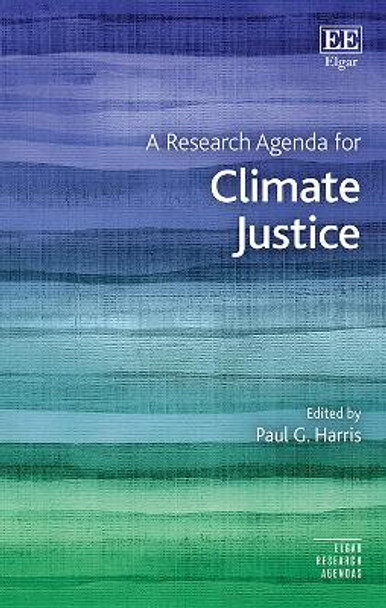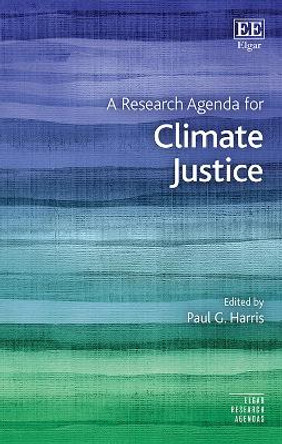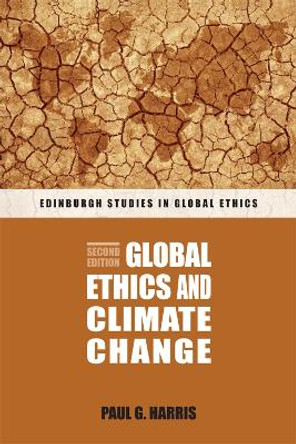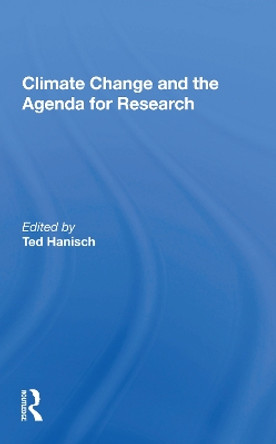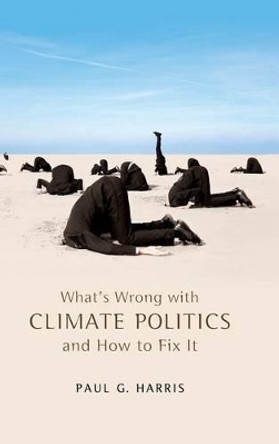Description
Climate change will bring great suffering to communities, individuals and ecosystems. Those least responsible for the problem will suffer the most. Justice demands urgent action to reverse its causes and impacts. In this provocative new book, Paul G. Harris brings together original essays to explore innovative approaches to understanding and implementing climate justice in the future.
Through investigations informed by theories from philosophy, politics, sociology, law and economics, this Research Agenda reveals the actors most responsible for climate change and suggests concrete proposals for more effective mitigation. Addressing the distribution of scarce resources and the disproportionate responsibility of affluent nations and people, this insightful book asserts that climate change is a matter of equity, fairness and social and distributive justice. It argues that climate change is shaping up to be the greatest injustice in all of human history.
This analytical and thought-provoking Research Agenda will be a valuable tool for climate change researchers while its interdisciplinary approach will appeal to students and academics researching in the fields of global environmental politics, sustainability, international relations, environmental philosophy and law. The examination of the key questions of climate justice from global through to individual levels will also aid policy-makers, practitioners and activists.
Contributors include: R. Attfield, I. Bailey, F. Corvino, A. Dietzel, J. Donhauser, P.G. Harris, S. Kopra, J.S. Mastaler, S.R. O'Doherty, G. Pellegrini-Masini, A. Pirni, D. Storey, C. Swingle, C. Tornel, I. Wallimann-Helmer
About the Author
Edited by Paul G. Harris, Chair Professor of Global and Environmental Studies, The Education University of Hong Kong and Senior Research Fellow, Earth System Governance global research alliance
Reviews
'In his introduction to A Research Agenda for Climate Justice, Paul Harris says that it is not far-fetched to suggest that climate change is becoming the greatest injustice ever perpetrated in all human history. He may well be right. Yet how do we get others - and in democracies, a majority of voters - to see it this way? The contributors to this book not only show, from their different perspectives, why climate change is an injustice, but also take steps towards answering that question.'
--Peter Singer, Princeton University, US
'What should we do? Better to start with: What should we not do? The answer: Most of what we are now doing. This demands provocative, innovative research. The contributors in this exceptional volume consider future generations, effective policies, rich and poor, wealth vs. welfare, wild creatures, technology, degrowth, risks, rights, refugees, individuals in nations, large and small. There is no better analysis of the prospects of failure and success in climate justice.'
--Holmes Rolston III, Colorado State University, US
'Paul Harris has assembled a collection that examines important lingering questions in climate justice but also plots a new course for research in the field. Harris and his contributors explore how climate justice might be more broadly conceptualized and effectively advanced, extending the field's focus well beyond the questions about burden-sharing among nation-states that dominated its first decade.'
--Steven Vanderheiden, University of Colorado, Boulder, US
Book Information
ISBN 9781800888395
Author Paul G. Harris
Format Paperback
Page Count 192
Imprint Edward Elgar Publishing Ltd
Publisher Edward Elgar Publishing Ltd

